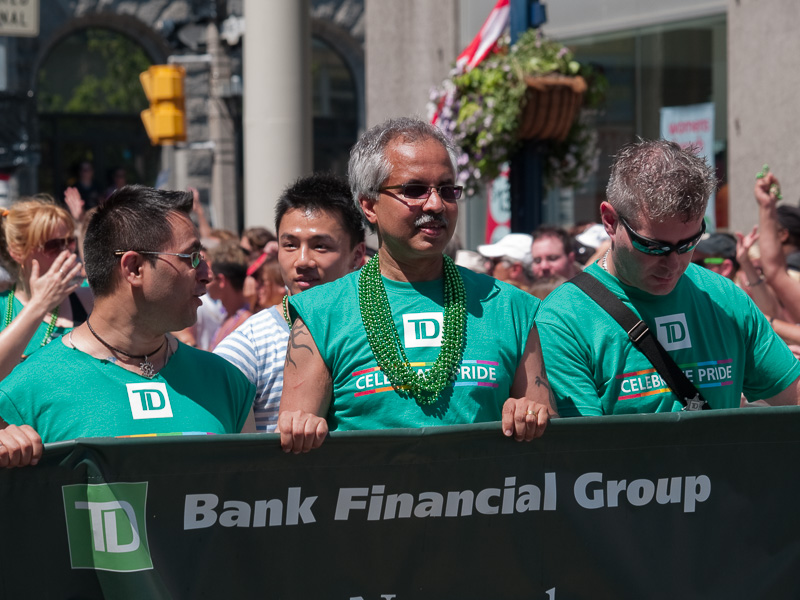
One of the worst things that can happen to a marginalized group is to go mainstream. When the revolutionaries become the ruling party, you know you’re fucked. That’s what we learn from Orwell’s Animal Farm as an object lesson of Stalinism. When the oppressed find themselves thrust into the center, then—whether because they are naïve or clueless or insecure—they adopt the center’s methods and end up being indistinguishable from their oppressors. This has been the story of revolutions everywhere—from Protestantism to Russia to modern day Israel. And now it looks like this is the story of Pride Toronto.
According to the official story of Pride Toronto, it is 30 years old. The simple fact that it’s an official story means that it should be treated with skepticism. Once there was a time when the only stories worth telling were the unofficial stories. People marched in the streets without getting special permits. Police stood by and wondered if they should arrest marchers for public indecency. Local merchants worried that it might hurt their businesses. And that was more than 30 years ago.
Now the City of Toronto loves Pride because it brings in millions of tourist dollars. The police and politicians are eager to march in the parade because it’s a PR bonanza. And every other float has a corporate sponsor. Which is fine. People come to Toronto from all over the world during the Pride festival. They may come from places where people aren’t so free to be. The Pride festival gives them hope.
But this year, some people wanted to use the parade to express solidarity with the people of Gaza and the Left Bank. They were going to march under a banner that included the words “Israeli Apartheid.” Organizers nixed the proposal. They said people aren’t allowed to use the words “Israeli Apartheid.” They said Pride isn’t about being political. You’re not supposed to push other agendas. They said this is too controversial.
At this point, feel free to blink in disbelief.
I write as an outsider and even I can see that there’s something funny (or maybe ludicrous is a better word) about Pride organizers who say that something is too controversial. (I’m not interested in arguing the merits of the pro-Palestianian voice. Leave that for another time.) I always thought that Pride was a queer strategy. It was about being loud (and proud). It was about being in people’s faces. It was about turning norms on their heads. It was about being unapologetic for difference.
As Pride Week approaches, the number of dissenting voices has grown. People are angry about censorship and the failure to acknowledge Pride’s roots. Since Israel’s attack on the Freedom Flotilla, this dissension has accelerated. Jane Farrow has declined her appointment as Honoured Dyke and has posted a concise statement of her reasons on facebook. She speaks of the value of free speech and reaffirms that her queer identity means that the personal is political. She goes on to say: “A discourse of ‘safety’ and ‘inclusion’ has been put forward to justify censorship at Pride 2010. I feel this is unfortunate and wrong-headed. I, like many people, do not feel ‘safer’ or ‘included’ by any decision to limit political speech. Quite the opposite. As history shows, suppressing people’s right to express and explore political difference leads to some very dark and dangerous places.” Now Magazine has printed a list of award recipients who have returned their awards for similar reasons, forming the Pride Coalition for Free Speech and giving the Shame Award to Pride Toronto.
Pride Toronto may be pushing into uncharted territory. It may well be the first queer body to encounter a major crisis as a mainstream organization. There is hope, of course. The Harper government has chosen to defund Pride Toronto. If the conservatives remain in power for much longer, the mainstream may become a fleeting moment that people can reminisce about in their old age. Then they’ll get back their marginal status and feel free to reclaim their queer politics.
